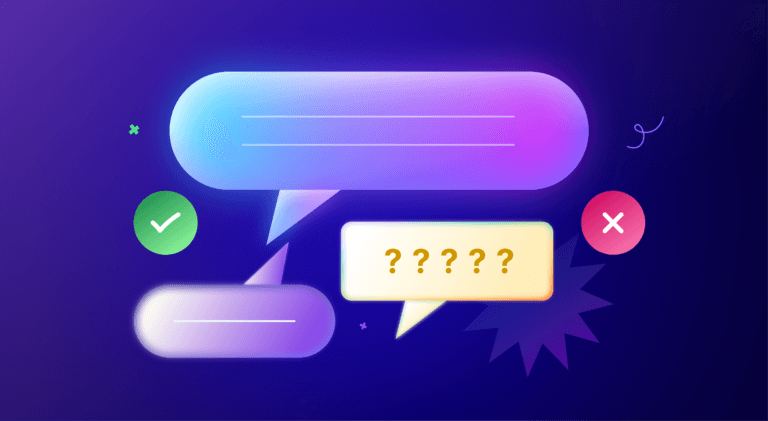7 Content Marketing Goals That Go Beyond Inbound Marketing

Table of Contents
- 7 Content Marketing Goals
- Why Inbound Marketing is Not Enough
- Importance of a Content Marketing Mindset
Content has always been an essential part of any business. And in the present-day scenario, one must have well-defined content marketing goals. Content creators and marketers must use content systematically and consistently for informational and promotional purposes.
However, the nature of content has changed over time, and so have content marketing strategies. Content marketing is now a customer-centric, holistic, and pragmatic approach. All marketing tactics must use relevant and optimized pieces of content for marketing success, from email marketing, inbound marketing, and social media marketing.
Why do you think content marketing is so vital for inbound marketing? Today’s conscious customers want to learn about brands and products before making any purchasing decision. Inbound marketing and its many components will fall flat without the substance and value that content can bring to them.
7 Content Marketing Goals
1. Brand awareness
Brand awareness is the first stage of the marketing funnel and is crucial for acquiring customers. Your target audience’s awareness of your company and their ability to recognize it is called brand awareness. It’s a great way to keep your brand registered in the minds of your target audience. When faced with the decision of whether to buy from your company or a competitor, they will be more inclined to choose you.

2. Nurturing and converting leads
The entire world of inbound marketing depends on the conversion metric. But how do you convert your viewers into leads? Put well-planned, informational, and sales-oriented content in front of your audience. After a point, they divulge so much about themselves that you are all set to “market” to them.
Their actions could include signing up for a demo, registering for an event, subscribing to your e-newsletter, or inquiring about your advertised product. If they seem genuinely interested, you can provide them with content to assist them in the buying process.

3. Customer conversion
The next on the list is customer conversion. You most likely already have plenty of content to fulfill this goal. After all, conversion is where all marketers focus much of their efforts. Content that converts includes case studies. This kind of content marketing demonstrates why your solution is the best for your prospects.

4. Customer service
Most people believe that customer service is all about human interactions. But this is far from true. Whether or not your website allows for direct customer interaction, you should focus on offering quality customer support. Since the web doesn’t allow for one-on-one interactions, you will have to brainstorm and develop innovative ways to deliver customer service. The sooner you include customer service in your list of smart goals for content marketing, the sooner you will taste success.

5. Retaining loyal customers
A planned customer retention strategy is as important as a lead nurturing plan. This is a crucial content marketing goal if you want customers to become passionate subscribers who share and like your content. The content options that help you attain this goal include customer newsletters, print magazines, user events, and webinars.

6. Upselling
Marketing doesn’t end with your customers clicking the “checkout” button. If you are a good content creator or marketer and can use content to engage customers, you might also be able to create ongoing engagement for the products and services your customers haven’t bought before. Why stop communicating when your prospects become your customers? Instead, engage with them more frequently to earn their loyalty. This is one of those goals content markets vouch for across the globe.

7. Expand your customer base
If you have been able to move your prospects to this level, then it is an outstanding achievement. Your passionate customers can help you reach any business goal. Content, especially that generated by customers, is powerful and can help you drive sales.
So, your ultimate goal should be to create a community that would be ready to be loyal to your brand. However, this is among those goals that should be on your list only if you believe in the quality of your products.
With the above-mentioned content marketing goals in mind and some smart work, you can expect to achieve the following:
- Win a loyal customer base.
- Have improved traction across social networks.
- Win the trust of your audience.
- Generate a high volume of quality leads.
- Improve chances of conversions.
- Gain better visibility across search engines.
- Build brand awareness.
- Cut down marketing expenses with zero ROI.
Why Inbound Marketing is Not Enough
Inbound marketing aims to attract potential customers rather than push a brand, product, or service onto prospects to generate leads.
From a digital marketing standpoint, inbound marketing may be defined as a marketing technique involving marketing channels such as SEO, social media, and content marketing.
Apart from a well-thought-out work plan to attain your content marketing goals, you need a solid roadmap to create an impactful social media presence. A successful inbound marketing strategy will increase your brand’s reach and drive quality traffic to your site and efficiently engage and convert customers.
Inbound marketing offers three key benefits:
- Increased brand awareness
- A boost in thought leadership positioning
- Increased lead and opportunity generation
While it is highly effective in enticing customers and generating leads, it is limited in its ability to deliver results that count. That means just inbound marketing is not sufficient, considering how crowded the online environment has become. Even with a strong SEO and social media marketing strategy, it is becoming increasingly difficult for businesses to stand out. Therefore, inbound marketing is proven effective only when combined with outbound marketing strategies.

A solid inbound program can undoubtedly help you win half the battle. But with the right outbound marketing strategies in the mix, you can win the world. Now, the question is: how do you know when your inbound marketing efforts are not sufficient? These are the signs you need to look for:
- There is fierce competition for the top keywords in your industry.
- After some steady growth, your social media engagement has hit a plateau.
While many factors can influence the points above, an increase in your competitors’ inbound marketing efforts is the most significant contributor. This is when you should give customers a nudge to get back on track with some good outbound marketing tactics.
But remember, no marketing effort can be successful without a solid strategy. This is especially true if you are trying to combine inbound and outbound marketing seamlessly. Your strategy must focus on the goal you are trying to achieve and the steps you plan to take to get there.
Importance of a Content Marketing Mindset
Content marketing involves more psychology than you might imagine. You can hope to attain your content marketing goals with proper research and an understanding of consumer psychology. And you require the right mindset to be able to understand something as intricate as customer behavior. Hours of research on blogs and social media and an understanding of social psychology can help you get there.
Whether you are a brand, a content creator, or someone in charge of marketing content, you can make mistakes. The result? You might put the wrong piece of content in front of the wrong people. While the right content can attract an audience and hook their interest, the wrong content can drag a brand through the mud. And that is why you must think like three distinct people while creating content:
- A content creator
- A content marketing professional who distributes the content to viewers
- A viewer for whom the content is created

Remember, content marketing is not just a marketing tool. Every person associated with getting content ready should change how they view their content marketing strategy goals and plan to achieve them. This mindset must transcend departmental boundaries so that everyone feels accountable for the overall content marketing process.
In Summary
Which of the above-mentioned content marketing goals will work best for your business?
Maybe you are focusing on inbound marketing and only trying to drive more leads. Perhaps your goal is to create a program that would raise awareness, earn you a steady stream of organic search traffic, and improve your position across search engines. Maybe your goal is to increase customer retention. Whatever it is, make sure you figure your goal out and plan your marketing activities accordingly.
Key Takeaways
- Today’s consumers are conscious, and they want to learn about brands, products, and services before making any buying decision.
- Inbound marketing is all about being discovered online via search engines and social media channels.
- To understand the psychology behind customer behavior, you need a content marketing mindset.
- Some of the best goals for content marketing include brand awareness, conversion, customer service, upselling, and the like.
- With proper content marketing, you can gain a loyal customer base, improved traction across social networks, improved chances of conversion, better visibility across search engines, a high volume of quality leads, etc.
FAQs
Although there are many, some of the most significant examples include increasing brand engagement, revenue generation with marketing activities, establishing thought leadership, generating a high volume of quality leads, and building brand awareness.
Begin with a broad idea of what you want to achieve, then narrow down the scope of your goal by being specific. Make sure your goal is attainable, measurable, relevant, and time-based.
A content marketing strategy is a marketing plan that outlines how to engage and retain a target audience through the creation and sharing of relevant content such as blogs, videos, and podcasts.
You can improve your content marketing efforts by having a solid content plan, delivering the right content at the right time, answering the right questions, figuring out your content’s purpose, and having a diverse pool of content.
Content marketing is crucial for your business because it answers your audience’s questions and helps build trust and relationships with them. It also increases conversions and generates leads. Also, note that customers only expect consistent, high-quality content from their favorite brands.
Latest Blogs
Explore how Google’s 2025 AI search updates triggered ranking chaos. Learn actionable strategies to adapt your SEO for AI Overviews, zero-click searches, and SERP volatility. Stay ahead now.
Learn how to rank on AI search engines like ChatGPT, Perplexity, and Gemini by optimizing your content for authority, structure, and relevance. Stay ahead in AI-driven search with this strategic guide.
Explore the best healthcare SEO services for your medical practice. Improve online visibility and effectively reach more patients in need of your services.
Get your hands on the latest news!
Similar Posts

Content Marketing
4 mins read
11 Best B2B Content Marketing Agencies for B2B Companies in 2024

Content Marketing
5 mins read
Top ecommerce Marketing Agencies with Proven Strategies for 2024

Content Marketing
5 mins read